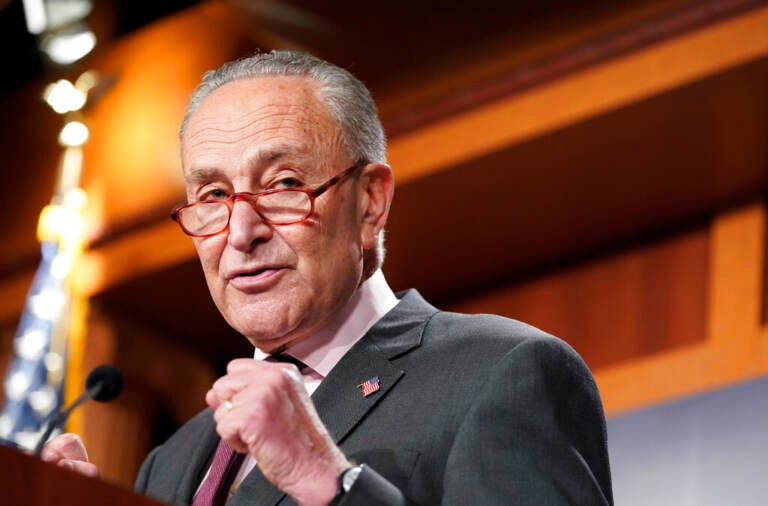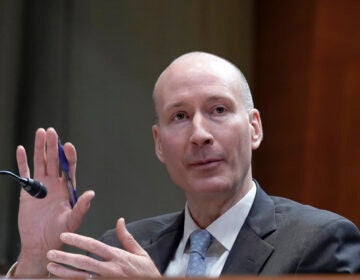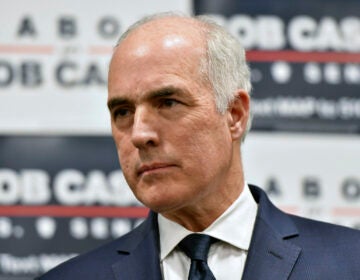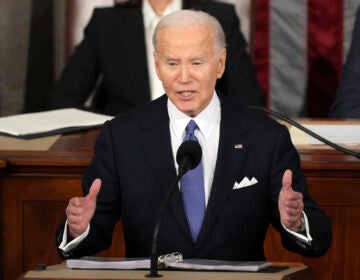The Inflation Reduction Act: what’s in it and what’s not
With Democrats poised to pass the Inflation Reduction Act, we look at what's in it, what got dumped and why, and how it may impact the economy, healthcare and climate change.
Listen 49:15
Senate Majority Leader Chuck Schumer of N.Y., speaks during a press conference on the Inflation Reduction Act, Friday, Aug. 5, 2022, on Capitol Hill in Washington. (AP Photo/Mariam Zuhaib)
Some good news for consumers – inflation dropped a little in July along with the price of gas, which is now around $4 a gallon on average. At the same time, the democrats are expected to pass the Inflation Reduction Act this Friday. It’s a major piece of legislation that tackles the deficit, drug prices and climate change and includes some tax reforms, including a minimum tax of 15% of large corporations. But to get the spending bill through the Senate and secure votes from Joe Manchin and Kyrsten Sinema, a number of provisions were cut, including more significant tax reforms and the carried interest loophole.
This hour, we’ll take a look at what’s in the bill, what got dumped and why. And we’ll look at the impact the legislation may have on the economy, healthcare and climate change and politics behind it with ANDREW DUERHEN, economic policy reporter for The Wall Street Journal, and MARIANNE LEVINNE, who covers the Senate for Politico. But first, Princeton University economist and former Vice Chair of the Federal Reserve ALAN BLINDER shares his thoughts on inflation, the state of the economy and the benefits of the new spending package.
WHYY is your source for fact-based, in-depth journalism and information. As a nonprofit organization, we rely on financial support from readers like you. Please give today.





